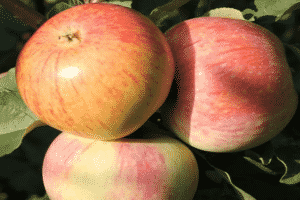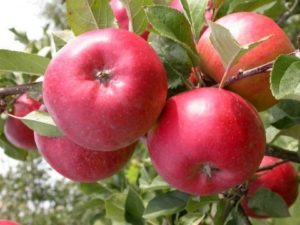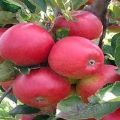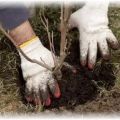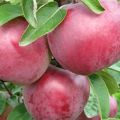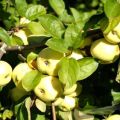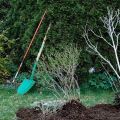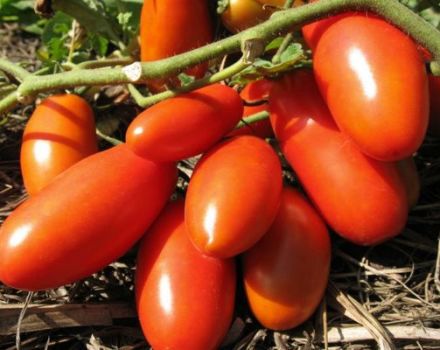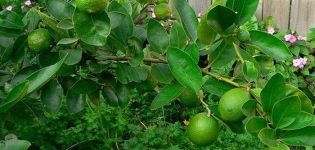Description, characteristics and subspecies of the Uslada apple tree, the subtleties of growing
Gardeners planning to fill the garden with compact, abundantly fruitful trees are advised to pay attention to the Uslada apple tree. The variety has become famous for its many qualities that are best learned in advance. You should also learn better about leaving before planting, this will facilitate some processes and prevent annoying mistakes.
Pros and cons
The Uslada apple tree has many advantages, which are noted by experienced gardeners. Among them:
- the tree soon after planting enters the fruiting phase;
- the variety easily tolerates frost;
- the plant can withstand low temperatures.
It is difficult to talk about the minuses, the only thing that can disturb is too active growth of the crown, which will require regular pruning.
The history of the appearance of the Uslada variety
Uslada owes her appearance to one of Michurin's students, an employee of Moscow State University, Isaev, who crossed cultivars and wild apple trees. Almost in 2000, the variety was allowed to grow in different regions of Russia. Delight grows successfully in private gardens and large industrial farms.
Advantages and disadvantages
The advantages of the Uslada apple tree usually include the excellent taste of the fruit. Another advantage over other varieties is the resistance to diseases of fruit crops.
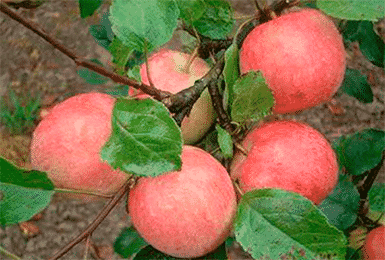
Of the shortcomings, some gardeners note the uneven ripening of apples. Thanks to thickening, the fruiting season is able to stretch out.
Description
It is better to study the description of the apple tree Delight in advance in order to prepare the most convenient place for the tree, to prevent mistakes in care.
Trunk height and crown width
The Uslada apple tree is classified as a medium-sized variety. The trunk rarely exceeds 4 m in height, which greatly facilitates the collection of fruits. Crown width - up to 5 m.

Annual growth
The shoots of the apple tree grow too actively and can give an increase of up to 25 cm in a year. That is why it is recommended to carry out regular pruning, which will allow you to maintain a compact crown.
Root system
The root system is also actively growing. In an adult tree, the shoots can reach 3-5 m.This must be taken into account when planting other plants nearby or when loosening the soil.
Yield characteristic
In the apple tree, Delight of gardeners is attracted not only by the compactness of the trees, but also by the yield. The palatability of the fruit is also not in the last place of the advantages of the variety.
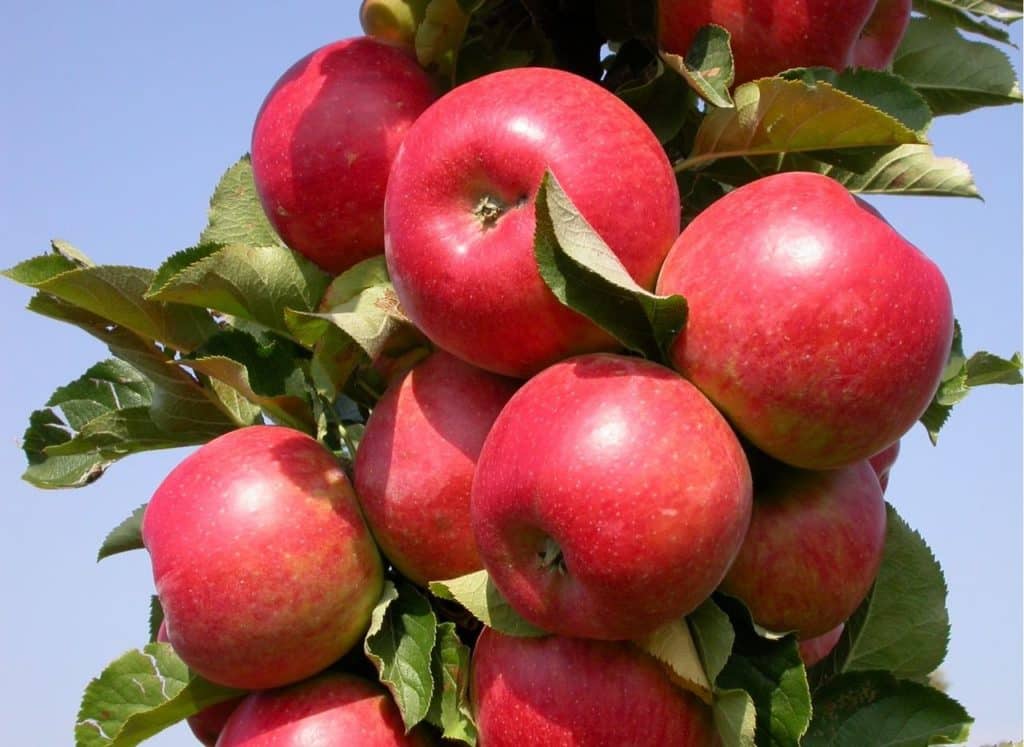
Appearance and taste of apples
Uslada apples have a characteristic raspberry hue of fruit. The pulp is juicy, white with a characteristic pink hint. The taste is sweet and sour, there is a pronounced apple aroma.
Harvest amount
An adult tree gives up to 70-80 kg of fruit. Apples have strong, thick petioles that prevent ripe fruit from shedding.
Collection and use of fruits
The first fruits ripen in mid-August. Fruiting is long - thanks to the dense crown, apples ripen until mid-September.
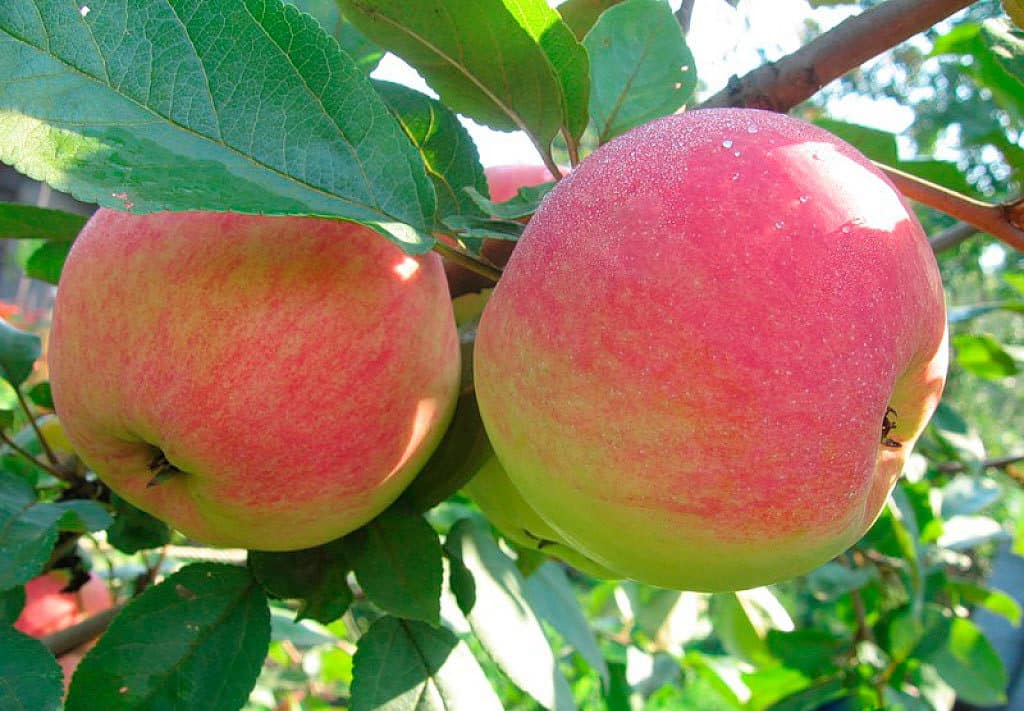
The use of Delight apples is universal. The fruits are used for the preparation of culinary masterpieces, canned, consumed fresh.
Specifications
Often, many gardeners give priority not to the taste of the fruit, but to the technical characteristics.
It is better to study the peculiarities of trees in advance, this will greatly facilitate maintenance.
Frost resistance
Uslada is resistant to low temperatures and feels great even in harsh conditions. In warm regions, the apple tree will do without winter shelter, in cold regions it is better to protect the tree.

Immunity to infections and diseases
A distinctive feature of the variety is its resistance to diseases. Scab and rot rarely affect Uslada, but experienced gardeners warn that it is better not to risk the plant and carry out preventive treatment in a timely manner.
Requirements for soil and climatic conditions
Delight feels great on light loams. If the soil is poor and heavy, it is best to prepare a nutrient mixture. When planting, add compost and humus to the soil. A small amount of sand and clay will be useful.
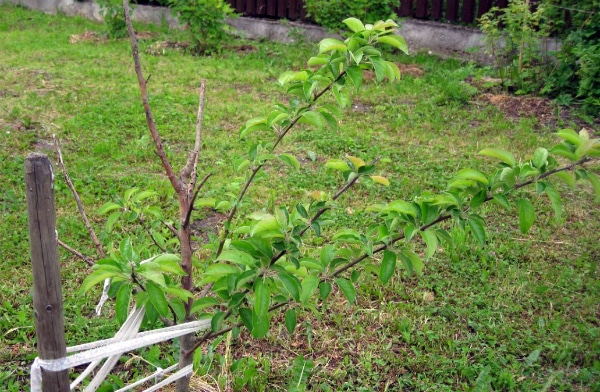
The apple tree is recommended for growing even in difficult climatic conditions. Frost and heat are not an obstacle to abundant fruiting.
Planting seedlings
Mistakes made when planting a young tree can lead to poor development or even death of the plant. In order not to destroy the apple tree, it is recommended to carefully study the planting requirements.
Timing
It is recommended to plant young plants in early autumn, this time is enough for the seedling to adapt to a new place. If you have to plant in the spring, do not be late with the process - planting should be carried out before the juice begins to move.

Hole layout and dimensions
Plant Uslada no closer than 4 m to other fruit crops. Leave 3 m between the rows. The hole diameter is at least half a meter. Depth - 55-70 cm. Be sure to put drainage.
Optimal drop-off location
Delight is afraid of drafts and gusts of wind, so it is better to plant an apple tree in a cozy corner of the garden or near yard buildings. Make sure that large varieties of fruit crops do not shade the plant.
Care of a young tree after planting
After planting, lay a layer of mulch to protect it from cold and heat. It is imperative to water the plant abundantly - at least a bucket per seedling. In hot summer, moisten the soil, carry out loosening.
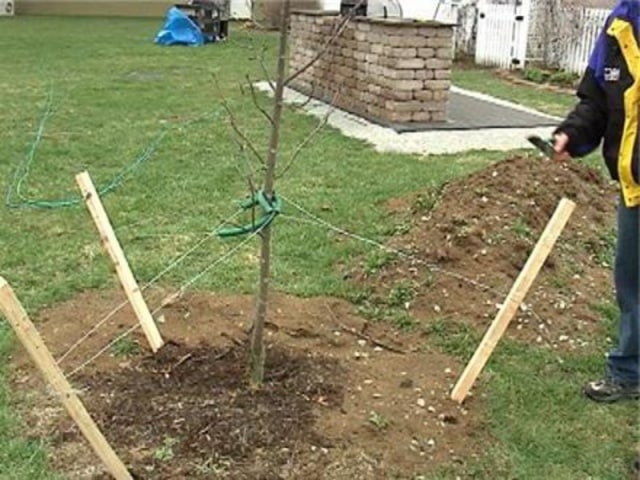
Agrotechnics behind an adult tree
Compliance with the rules of agricultural technology will allow you to get a lush tree with abundant fruiting. Care for Delight consists in timely watering, dressing, pruning.
Care Tips
There are many tips that will allow you to easily cope with caring for an apple tree and get a harvest in a short time.
Watering
Watering should be carried out in a dry season - add 10-20 liters of water under each tree. Be sure to protect the liquid under the sun.
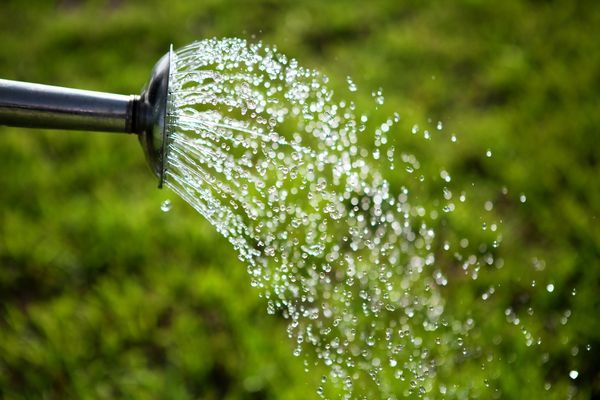
Top dressing
Use complex formulations for fertilizers. You can replace chemicals with organic matter - mullein infusion or humus.
Loosening the soil
Loosening the soil regularly. It is imperative to remove weeds that take nutrients from the soil.
Seasonal processing
During the season, irrigate the apple tree from pests and diseases. Use preparations based on copper sulfate, folk remedies.
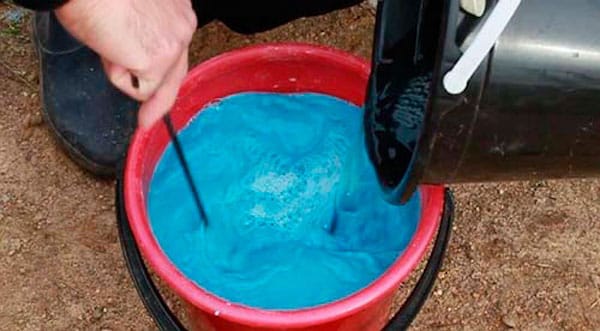
Pruning
In the first year of life, the main trunk is shortened. In the following years, shoots, dry or broken branches are cut.
Mulching
Use peat, compost for mulching. A layer of mulch - at least 5 cm. If a nutrient layer is used, it is better not to use fertilizers, thanks to melt water, the plant will receive everything it needs.
Subspecies and variants
There are several subspecies of Delight that you need to learn more about. Knowledge will allow you to care for the variety without hassle.
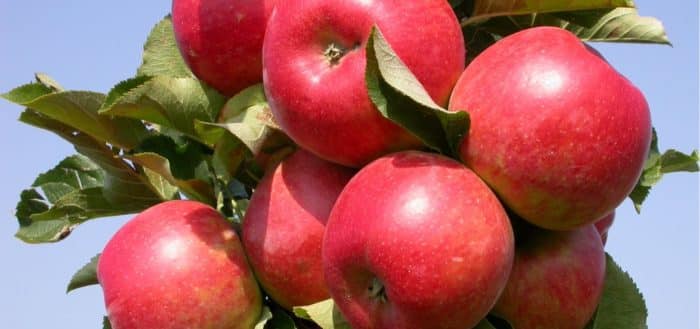
Columnar
When planting, the formation of the root system will be required. The columnar subspecies will have to be cut regularly. Used in industrial production or in small gardens.
On a dwarf rootstock
They are used if you need to accelerate fruiting or get a plant that is resistant to freezing, harsh climates. Delight is not afraid of the cold, feels great in the northern regions.
On a clone rootstock
The main advantage of the apple tree is that all maternal characteristics are fully adopted. Grown if it is necessary to preserve genetic qualities.
Growing an apple tree Delight will certainly bring pleasure even to inexperienced gardeners, because there will be no difficulties in leaving. The tree, with strict adherence to all the rules of agricultural technology, will certainly thank you with fruiting already in the third year after planting.
